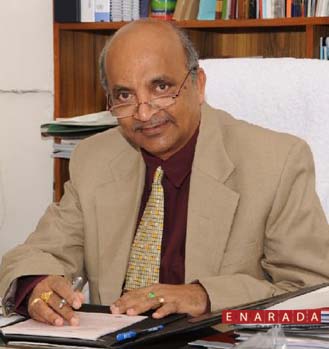
Vice-Chancellor, National Law School of India University, Bangalore
ENARADA, Bangalore, July 12, 2014
Data Security Council of India (DSCI) announced that it has signed a two-year MoU with the National Law School of India University (NLSIU).
Under this agreement both institutions will undertake collaborative research and conduct public advocacy in the areas of cyber laws and data protection.
This strategic alliance will support closer industry-academia interactions through joint research and hosting of national and international conferences on Information Technology law and policy. It also aims at enhancing the knowledge of law graduates though professional skill development programs.
Accordingly, DSCI will contribute to the development of course materials on cyber security and cyber law by NLSIU. In turn, DSCI will draw on the legal expertise of NLSIU faculty members on the areas of IT Law to support its ongoing policy initiatives.
Prof (Dr.) R. Venkata Rao, Vice Chancellor, National Law School of India University said that “this is a very important step in NLSIU’s focus on law, science and technology.”
Dr. Kamlesh Bajaj, CEO, DSCI said “DSCI is taking comprehensive efforts at various levels to enhance the industry’s awareness on cyber security and data protection. This collaboration will open several avenues to nurture the talent of our nation.”





‘Data Security’ and ‘Cyber Law’ are two eyes for the Information Technology which has to be well maintained and protected in this fast developing world of Cyber Technology. The security of data includes ‘protection’ of data and ‘prevention’ of of its abuse and stealing of data by hackers and phishing. Once the means and modes are developed for data security, the question of ‘enforcing’ comes to the fore and for that purpose, special laws viz Cyber Laws are to be formed and legal paternity have to be updated and trained for its proper and effective implementation.
For this purpose, research has to be done in the field of ‘Digital Signature’; development of powerful pass words; pay grade access to the official data and a strict vigil on the employees working status.
Despite all the security, criminals are one step forward in the filed of stealing; hacking and phishing. For this the exiting ‘Information Technology Act’ to be reviewed, and more stringent punishment to be imposed on the offenders. Because of less awareness and expertise of the cyber space and its mode of working amongst elder people who occupy Judicial field, assistance of Cyber specialists to be taken to solve the crimes and to know the blind spots by which we can catch the offenders and punish them.